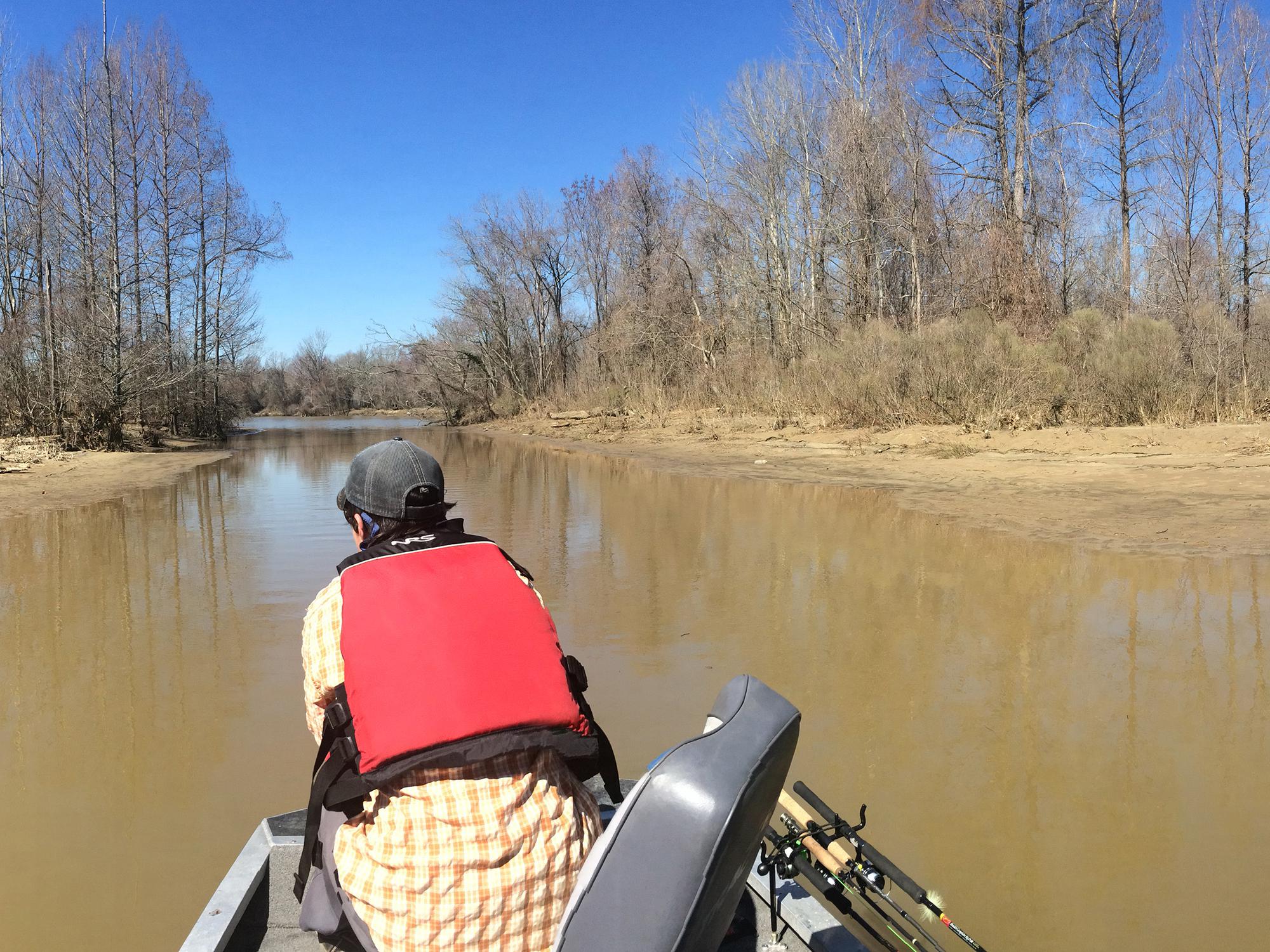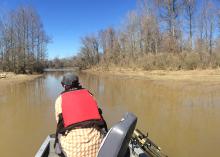Information Possibly Outdated
The information presented on this page was originally released on November 11, 2016. It may not be outdated, but please search our site for more current information. If you plan to quote or reference this information in a publication, please check with the Extension specialist or author before proceeding.
Consider boating safety during hunts on cold water
RAYMOND, Miss. -- As the days turn colder, many people can't wait to spend time on the water, and safety should be a top priority.
Duck hunters are boating on some of the coldest days of the year, when the risk of falling overboard into icy cold water is a very dangerous threat. According to the Boat U.S. Foundation, in 86 percent of the cases where hunters died in boating accidents, they were not wearing life jackets. In fact, they didn't even have life jackets on board in almost 50 percent of the cases. There is really no excuse, with all the comfortable, effective life jacket options available today.
Always wear a life jacket. Life jackets for hunting come in all shapes and sizes, including vests or inflatable styles. They are available in popular camo patterns and in shapes that don’t interfere with shooting. Wearing a life jacket is the single most effective precaution a hunter can take to save his life while on the water.
There are other precautions hunters can take to make sure they are prepared for any situation that comes their way this winter. Dress for the water temperature, not the air temperature. Wearing layers allows flexibility as the temperature changes while you are waiting for the ducks. Always wear a hat, since 50 percent of body heat is lost through the head.
Load the boat correctly. When loading gear, distribute the weight evenly around the boat. Avoid overloading the stern. When the boat gets going, it tends to sink towards the rear. Check the boat’s capacity plate to avoid overloading.
File a float plan. Let a family member or friend know where you are going on the water, and when to expect you back. If you haven’t arrived or called at the designated time, they will know to alert local authorities.
Hunting can be an extreme sport, and knowing how to watch the weather, deal with hypothermia and save yourself if you do end up in the water are all essential skills. By following these four basic cold water boating tips, you will be assured of many safe outings in the future.

Editor’s Note: Extension Outdoors is a column authored by several different experts in the Mississippi State University Extension Service.









